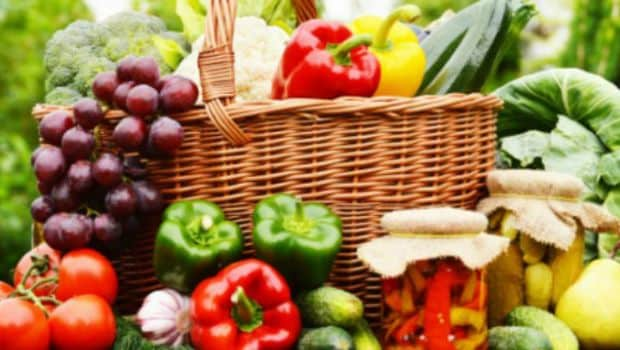The twinkling lights. The Starbucks cups. The fa-la-la-la-laing.All of those things are fine for getting into the seasonal spirit. But it's not really the holidays until you read an article about avoiding weight gain. In the December issue of Women's Health, Paige Fowler offers this new twist on the usual advice: Eat like an animal.Her theory is that "birds and beasts spend three-quarters of their waking lives acquiring and consuming food - but never get fat. Sooo, who better to go to for diet advice?"
No actual animals appear to have been consulted in the reporting of this story. Instead, Fowler focuses on a few habits of five creatures and then suggests how humans might ape them (although it's monkeys, not apes, that are included in this list).In most cases, the goal is to glean a lesson from the animals rather than behave exactly like them. Penguins, for instance, are lauded because they "take a break from food." Their month-long fasts become inspiration for holding off on late-night snacking. Cows, which "gulp more than 2,000 ounces of H2O daily," are smart about staying hydrated. If you do the same, you won't confuse thirst for hunger. And those monkeys like to grab whatever fruit they can find nearby. The lesson for humans: Keep a fruit bowl in a prominent spot in your kitchen, and always stock your fridge with fresh-cut veggies.As you hit the party circuit, consider the sheep that wore your woolen sweater before you did. She probably chewed and chewed and chewed each bite of her meals, a trick that can make you feel more satisfied.And if you find yourself leaving a buffet feeling like a whale? Try to act more like one next time. They "don't fear fat," Fowler notes. By eating food with normal levels of fat, you can feel fuller - and better able to resist all of those sugary, carb-laden cookies.(This story has not been edited by NDTV staff and is auto-generated from a syndicated feed.)
No actual animals appear to have been consulted in the reporting of this story. Instead, Fowler focuses on a few habits of five creatures and then suggests how humans might ape them (although it's monkeys, not apes, that are included in this list).In most cases, the goal is to glean a lesson from the animals rather than behave exactly like them. Penguins, for instance, are lauded because they "take a break from food." Their month-long fasts become inspiration for holding off on late-night snacking. Cows, which "gulp more than 2,000 ounces of H2O daily," are smart about staying hydrated. If you do the same, you won't confuse thirst for hunger. And those monkeys like to grab whatever fruit they can find nearby. The lesson for humans: Keep a fruit bowl in a prominent spot in your kitchen, and always stock your fridge with fresh-cut veggies.As you hit the party circuit, consider the sheep that wore your woolen sweater before you did. She probably chewed and chewed and chewed each bite of her meals, a trick that can make you feel more satisfied.And if you find yourself leaving a buffet feeling like a whale? Try to act more like one next time. They "don't fear fat," Fowler notes. By eating food with normal levels of fat, you can feel fuller - and better able to resist all of those sugary, carb-laden cookies.(This story has not been edited by NDTV staff and is auto-generated from a syndicated feed.)
Advertisement








